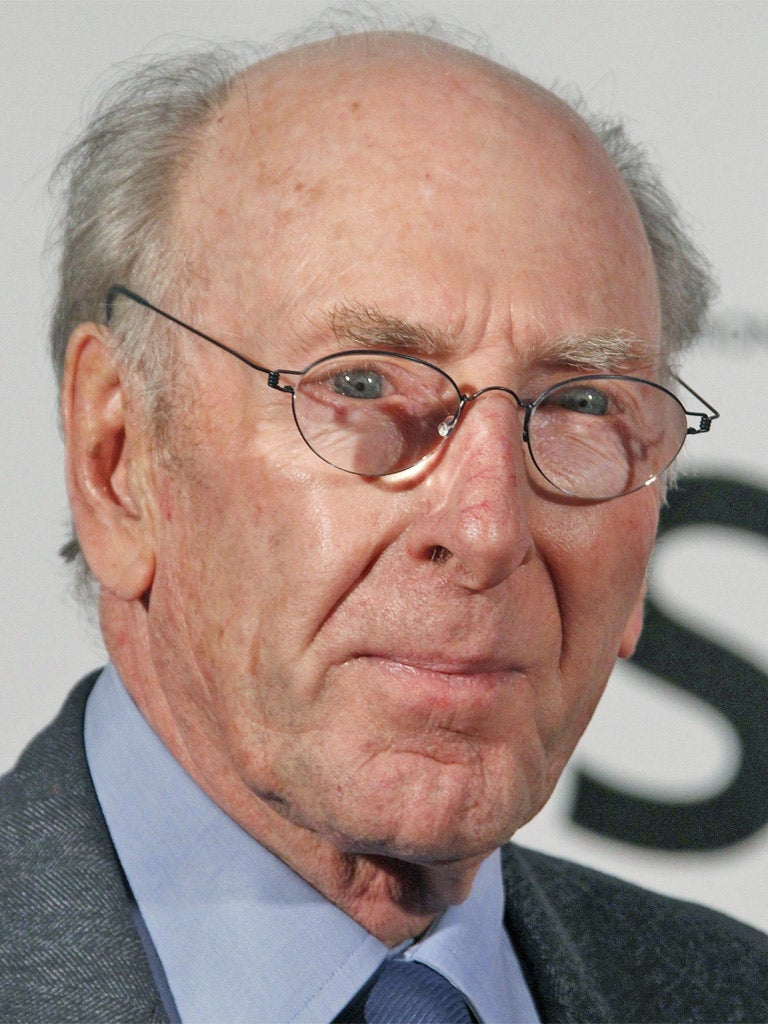
The film director Claude Pinoteau helped launch the careers of two of France's most successful screen actresses: Isabelle Adjani and Sophie Marceau. In La Gifle (The Slap, 1974), he cast the young Adjani as a headstrong medical student determined to move in with her boyfriend, to the dismay of her father, played by Lino Ventura.
The precocious Adjani was already a member of the Comédie-Française theatre company, but the film's success caught the attention of directors François Truffaut, Werner Herzog, James Ivory and Luc Besson, and she soon became a bankable star. Pinoteau later admitted, with embarrassment, that he had slapped her "to help her motivation".
In 1980, Pinoteau and his casting director Françoise Menidrey tried out many young hopefuls for a lead role, a lovesick teenager trying to plan her first party, in La Boum. Emmanuelle Béart was thought too pretty, but Menidrey screen-tested Sophie Maupu, 14, whose natural innocence and irreverence made her perfect. Renamed Sophie Marceau, she became France's sweetheart after five million people bought tickets for the film. Teenagers identified with its coming of age theme, while older cinema-goers recognised their own failings in her screen parents. The film did good box-office in Europe and Japan, though Anglo-Saxon countries were immune both to its charms and its cheesy soundtrack.
Pinoteau also directed Marceau in the sequel La Boum 2 (1982), featuring a Liverpool group Cook da Books, who topped the French charts with a ballad from the soundtrack, and the romantic comedy L'Etudiante (1988). Marceau also made an international career, and even a Bond movie.
Pinoteau had grown up around film sets, since his father Lucien Pinoteau was a régisseur, a location or studio manager. Young Pinoteau was a studious teenager and seemed destined for Saint-Cyr, the French military academy, but at the outbreak of the Second World War the family moved to Nice, where film-making continued during the Occupation. His sister became an actress and singer; he and his brother followed their father. "I started as a runner, became a prop man, then a régisseur and eventually rose to assistant director. It's the only thing I boast about. I'm not sure I was a good director but I was a very, very good assistant. It's a real trade."
Pinoteau assisted the crème de la crème: Jean Cocteau – four films, including the dreamlike Orphée (1950) – Max Ophüls, René Clair, Claude Lelouch and Henri Verneuil. "I used to tell myself I wasn't fit to tie their shoes. That's probably why I didn't start directing until my late forties. But I learned a lot and I stored it all."
He was talked into making the transition from shorts to full-length features by Ventura, who had been the burly star of several Verneuil pictures, and directed Ventura in Le Silencieux (The Man Who Died Twice, 1973), a Cold War thriller partly set in London. La Gifle won the prestigious Prix Louis-Delluc.
The Pinoteau-Ventura partnership produced two more thrillers, L'Homme En Colère (Jigsaw, 1978) and La Septième Cible (The Seventh Target, 1984). Pinoteau also made the comedy Le Grand Escogriffe (The Big Operator, 1976) with Yves Montand in the title role, before hitting the big time with La Boum and its sequels, which have now become staples of all French television schedules.
He lost his way after a war film, La Neige Et Le Feu (Snow And Fire, 1991), and the caper movie Cache Cash (1994) was a serious flop, but he recovered his touch with Les Palmes De Monsieur Schutz (1997), a biography of Pierre and Marie Curie, played by Charles Berling and Isabelle Huppert.
By then in his seventies, Pinoteau directed a docudrama about the life and work of l'Abbé Pierre, the founder of the Emmaüs charity, for French television in 2005, and he published his autobiography in 2007, Merci La Vie! Aventures Cinématographiques (Editions Ramsay). As an admirer of Charlie Chaplin and Frank Capra, Pinoteau was an unashamed populist, but he did reveal that he had once claimed he wanted "to make films that appeal to what is best in the spectator. How pretentious was that?" He succeeded, and, moreover, he succeeded several times.
Pierre Perrone
Claude Pinoteau, film director: born Boulogne-Billancourt, Hauts-de-Seine 25 May 1925; twice married; died Neuilly-sur-Seine 5 October 2012.
Join our commenting forum
Join thought-provoking conversations, follow other Independent readers and see their replies
Comments